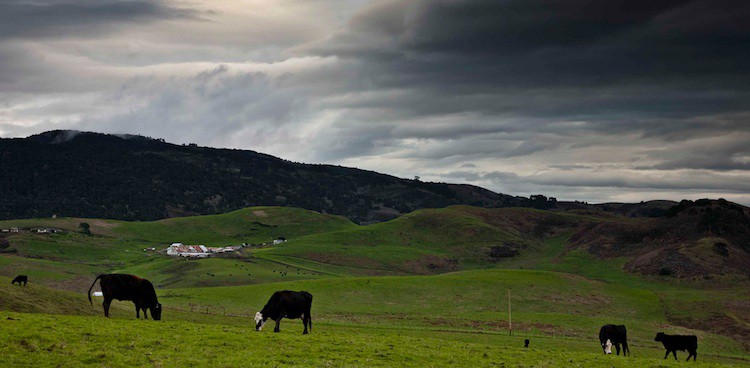
Sustainability can be a problem at many dairies, but in this blog series intern Alicia gets the deets on some eco-friendly cheesemakers from across the map. Find out what makes each cheese green, and enter the weekly contest for a chance to win an issue of culture.
I would like to state for the record that I love cheese. And when I say I love cheese, I don’t mean I throw cheese on top of whatever’s for dinner. I mean I plan entire meals around cheese. I trek to other towns to find my current cheesy obsession. I force feed my friends with grandiose promises of “this will be best cheese you’ve ever eaten!” I am crestfallen if they disagree.
But I am also a vegetarian. Mostly for health reasons, but also for the added bonus of being kind to animals and the environment. And when approached from this angle, there are a few hard facts to face about my true love.
Animal agriculture is the largest global producer of methane gas, a greenhouse gas that is 23 times more detrimental than carbon dioxide. Raising animals uses nearly 30% of Earth’s available land, which can lead to rampant deforestation. Energy is wasted carting animals and their feed to and fro. Livestock kicks up dust, polluting the air. Animal waste can poison water supplies. Admittedly, these statistics include animals raised for their meat, but those used for dairy products do their own fair share of dust kicking.
So what’s a cheese-lover to do? Short of becoming vegan–a task that few brave souls are able or willing to accomplish–it can be hard to find a balance that keeps you and the planet happy.
Enter Green Cheese, a digital weekly series profiling sustainable creameries from across the map. Whether they use solar power, methane digesters, recycled water, or give back to the community, their aim is to make sure their products do more good than harm. In other words, you can have your cheese and eat it, too. Check back every Friday to get the scoop on each creamery and find out what (alternative power method) makes them tick.
If helping the planet isn’t enough of an incentive, each post will also feature a contest question to be answered on Facebook. The winner will receive the current issue of culture.
This week’s contest question is: What cheesemakers or dairy farmers most impress you with their sustainability efforts? Submit your answer in the comments below and “like” our Facebook page to be eligible to win. The winner will be chosen at random and announced in next week’s Green Cheese post.
Tune in next week to hear from Straus Family Creamery, a California dairy that uses a methane digester to power much of their farm.
Photo by Tom Moyer




Hi Alicia:
Marta from Santa Gadea showed me your article on her and I see it’s part of a series. We are the ERast Coast importer for Santa Gadea but also many other organic farms with equally interesting stories, Hombre Farm in particular being the first certified organic producer of parmigiano reggiano.
-Seymour
Kootney Meadows, is a small family run farm in the Kootneys, BC, Canada and they produce raw and organic cows milk cheese. They use solar power for the dairy and use the irrigation water the cool the cellars, and it is one of our best selling cheeses from BC. They also take a lot of care when handling the milk, which gives the best result possible.
I hope you have a great day.